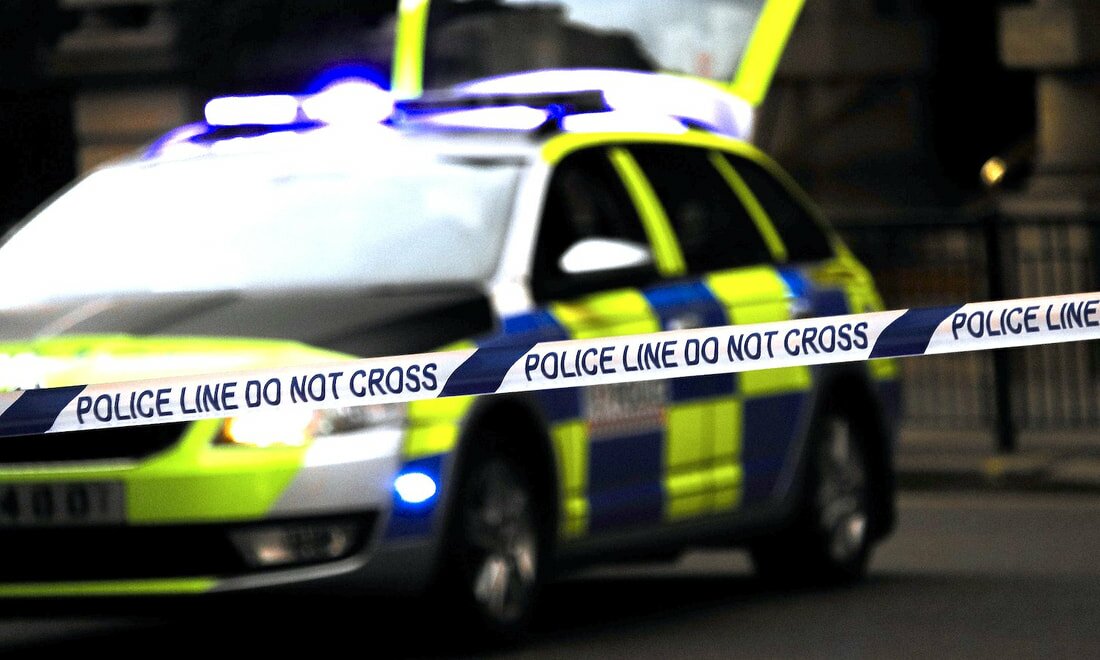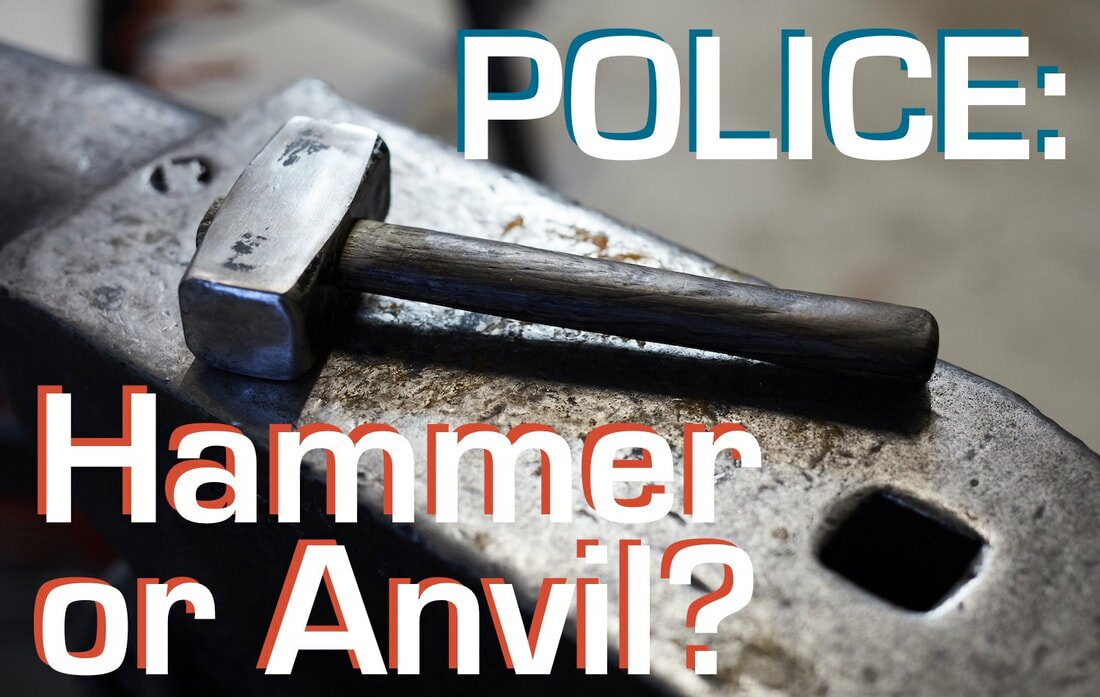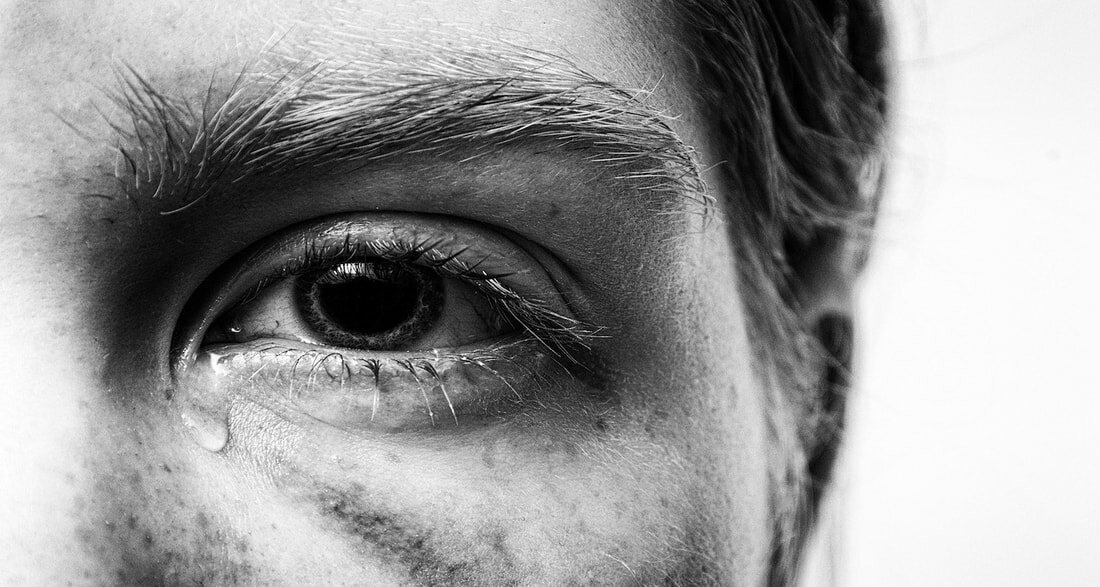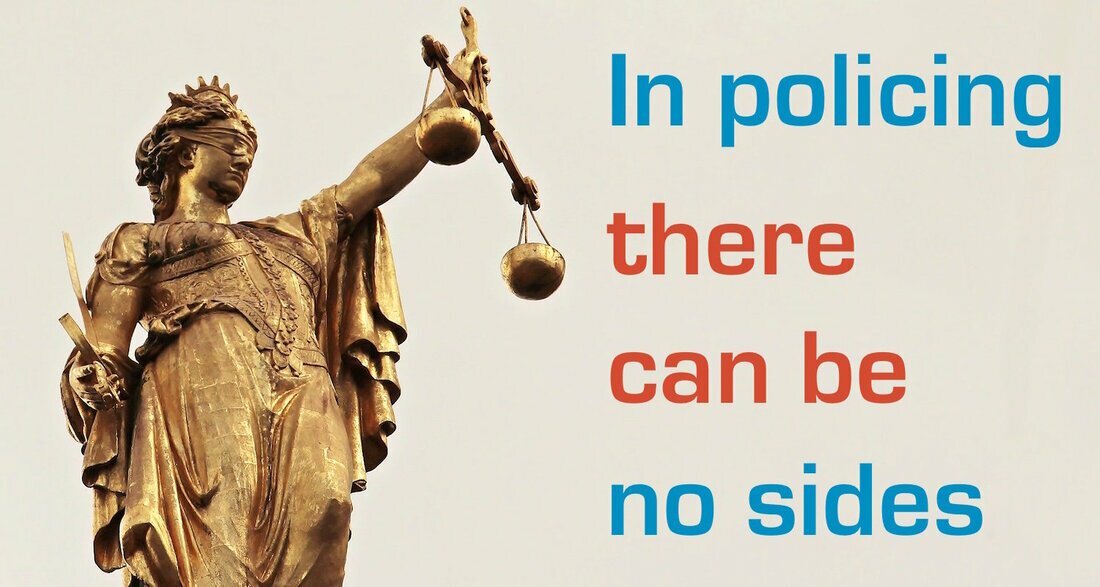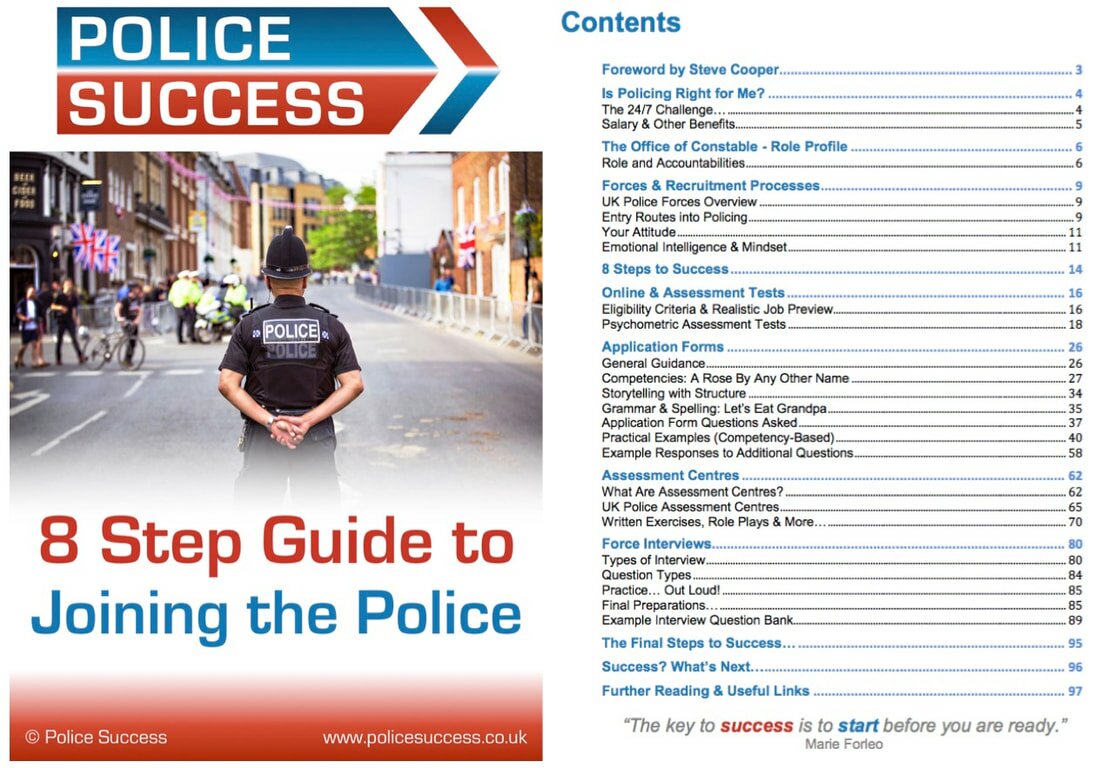Are Police the Hammer or the Anvil?
Should police always act on the letter of the Law? Maybe there is a greater purpose that should determine our response during civil disobedience like the recent 'Black Lives Matter' protests/riots (they have been described as both). During times of change, civil unrest is common but is it the job of the Police to take a side? Now some dust has settled and emotions aren't running so high, let’s consider that in this post which might spark some thoughts to those applying for the challenging, yet rewarding job of Police Constable...
Why Do We Have Police?
"The police are the public and the public are the police."
- Sir Robert Peel
Why we have the police at all is a question that is often asked. The glib response is to invite people to try living without and see how long it takes before they ask to go back to the way it was before. But it's more complex than that. The answers vary according to who you ask. Is it simply to catch criminals? Or to keep the community safe? Those two concepts aren’t necessarily mutually exclusive of course, but there can sometimes exist a grey area within which you must use your own judgement and discretion. That's where things can get difficult.
Let’s step back and take a wider perspective. Living with other humans is hard. People can be incredibly caring, affectionate and supportive. However, we can also be annoying, selfish and hateful. Living with other humans is a constant challenge for all of us, but we choose to do it. This has been true since the human race began and probably, it will always be this way. When you put a sufficient quantity of us together, some kind of policing function is essential. Society creates general rules (which we call laws) for us all to rub along effectively enough, but it’s an imperfect system. There will always be people who decide the rules don't apply to them. The fact is that we’re all learning together, and human society is still a work in progress. What we have is a delicate balancing trick. New technologies and geopolitical change constantly create new issues that can throw a spanner in the works now and then. Also, we have old issues that got swept under the carpet ages ago, but every now and then emerge to challenge us. Sometimes centuries later. One way to look at policing is as a social mechanism that keeps us collectively safe while we work out our issues. Another way is to see policing as a social mechanism for keeping people who don’t match the “general norm” under control. Ouch! Policing Hurts!
"Bravery is not the absence of fear, but action in the face of fear."
- Mark Messier
When you put the uniform on, you accept that you will be doing one of the hardest jobs there is. You’ll see things others will not.
Step onto the streets in uniform and you know that you’re also carrying the burden of expectations and duty that other people have of you. Because you are also a part of the community you serve, it’s not just up to you to decide what you will have to deal with on any given shift. Often that can be incredibly rewarding, but at other times it is painful, sometimes literally being assaulted. That happens, we know that, but it shouldn’t ever be accepted as part of the job. Surely there have to be limits to what you are expected to deal with? Protesting or Rioting?
"We must learn to live together as brothers, or we will perish together as fools."
- Dr. Martin Luther King Jr.
Someone once remarked that the USA is the longest riot in history. It started with the Boston Tea Party and is still going on. That may be a joke, but it does remind us of two things: firstly, that comparisons between UK policing and the police in the USA are ultimately fruitless. Secondly, that legitimate protest which is ignored can eventually lead to rioting. Whilst we accept that organised protest is a legitimate activity, history teaches us that governments rarely make big changes until the volume of social protest gets loud. Really loud. This is particularly true when it comes to structural change.
Would women have the right to vote today if it hadn't been for the Suffragettes? In November 1911 window smashing was officially adopted as a key campaign tactic by the Women's Social and Political Union. Also, destruction of property, such as attacks on public artworks, and even arson, were embraced. The Suffragette newspaper reported over 300 incidents of arson and bombing between 1913 and 1914. Similarly, it is almost impossible to imagine that the system of Apartheid that existed in South Africa could have been defeated had it not been for the riots that plagued that country. Ultimately, their government did not give up that system because of peaceful, ordered marches with placards. And the issue isn’t about the legitimacy or legality of the protester’s demands. When one part of our society believes that the sanctioned forms of protest are being ignored, and that their cause is just, this can lead them to adopt more violent measures. And that can mean laws get broken. This is exactly the point at which the police are inserted into the issue. Surely the policing function is about preventing law-breaking, and catching lawbreakers? Without fear or favour. But what about the bigger picture? Should you always be obliged to bring down the hammer regardless of the circumstances? Arrest every single offender? What if you consider that it would be of more service to the community to de-escalate the situation with empathy and discourse? This can only be possible if you remain impartial. During the 'Black Lives Matter' wave of protests and rioting, we’ve seen police in the UK and the USA take a variety of approaches ranging from direct confrontation to de-escalation. De-escalation can lead to an end to hostilities and the adoption of a co-operative approach, but requires that we accept and adopt certain concepts, namely:
Why do these things matter? Because when you’re caught up in the middle of conflict, it becomes incredibly tempting to pick a side. Our society is made up of us all. This includes protesters, law breakers and the ordinary public too. And you. If you see yourself as separate from ordinary society, we can kiss goodbye to policing by consent and you can't expect to get far when wanting to join the police as an officer. In many countries such as the US we have seen a growth in investment in military style hardware and clothing. The problem there is that once we surround ourselves in the trappings of the military it can become easy to adopt the mindset that goes with it. If you doubt that, ask any kid dressed as Batman what they feel like.
In wartime, an enemy exists and can generally be identified, and it’s easier to know which side you are on. You can take pride in it. For the police, it is extremely perilous to think of other members of our community as an enemy. They are us, we are them, as the Peelian Principle outlines. British policing is accepted as being the best in the world. It can be a force, but it is also a policing service.
We need the military and we need the police. But they are clearly not the same, which is why Great Britain has chosen the 'policing by consent' model for hundreds of years to date. In the Police There Can be No Sides
Sir Robert Mark, Commissioner of the Metropolitan Police 1972 to 1977 said that "The police are the anvil on which society beats out the problems and abrasions of social inequality, racial prejudice, weak laws and ineffective legislation."
Police are always in the middle. There is no third side, whether we like it or not. It’s hard when you or a colleague is struck by a protester, or subjected to a constant barrage of abuse, to feel unaffected by that emotionally. You wouldn’t be human if you were immune to that. But that is why the recruitment process is so rigorous. That is why the selection process rejects more candidates than it accepts. That is why we refer to ourselves as the Police Family. This is one of the reasons why we call it a job like no other. Individual officers may feel drawn to one issue or idea but must never be tempted to take a side because of that. When you are on neither side, you are always going to be on the wrong side. Caught in the middle, the police will inevitably be accused by both sides of either incompetence or bias. Nevertheless, as an organisation and as individuals, finding a space between warring sides is your lot. And it may not be a happy one, but for the sake of our society as a whole it is an essential role: 'Lady Justice' doesn't take sides. Hammer or Anvil?
"The police are the anvil on which society beats out the problems and abrasions of social inequality, racial prejudice, weak laws and ineffective legislation."
- Sir Robert Mark
So, as a raw recruit or a seasoned officer, you must ask yourself this question daily: Can I be impartial about this? If not, think again because nothing less than that level of professionalism is good enough. If you can, you may be ready to join the police.
What do you think? Is it your role to bring down the hammer on lawbreakers regardless of the wider situation? Or, are you prepared to be the anvil upon which we work out our differences?
I hope you found this blog helpful, whether you are an aspiring to join the police as a member of the public, leaving the military, a serving Special Constable or PCSO. Download the comprehensive Police Success guide (below) for more detailed guidance, or feel free to arrange some 1-2-1 coaching for bespoke support. The guide includes comprehensive information about the role, CVF, assessment tests, application interviews, practice questions, and much more to help you excel and achieve your ambition to joining the police!
Kind Regards,
Steve
0,Police Success
0 Comments
Leave a Reply. |
 RSS Feed RSS Feed
AuthorA former Royal Marine, Detective Inspector, and is a qualified coach/mentor. With extensive police experience, Steve also established Rank Success to help officers achieve police promotion. CategoriesAll ArchivesFebruary 2021 |

